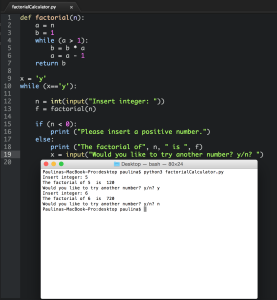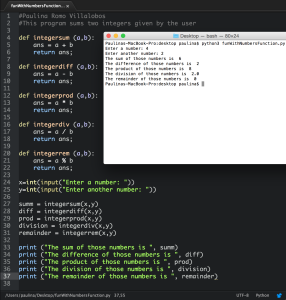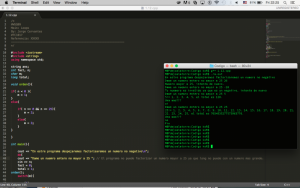Primero se debe de llamar a la librería iostream, y así poder utilizar datos de entrada y salida.
También se debe de definir el using namespace std.
Una vez esto, se debe de introducir el programa principal, el int main.
Se deben de definir las variables.
Después, se debe de preguntar por la variable con el cin >>
Una vez esto, se aplica un ciclo FOR para saber su tabla de multiplicar.
Un ciclo FOR sigue el siguiente formato:
Se escribe for, y dentro de parentesis, se hacen tres cosas:
1, Se declara al contador y el valor que tendrá al principio.
2, se declara la condición con la que se estará en el ciclo for (una vez que la condición no se cumple, se sale del ciclo). Esta condición debe de tener involucrado al contador.
3, Cómo irá incrementando o decreciendo el contador.
Un ciclo FOR, tiene como diferencia al While que, solo puede ser utilizado cuando se sabe exactemente el numero de veces que se repetirá el ciclo, contrario a lo que hace un while, que se puede aplicar sin saber cuantas veces se repetirá.
Dentro del ciclo FOR, se irá imprimiendo la multiplicación del numero proporcionado por el usuario, por 1, 2, 3,…, hasta llegar al 10.
Se compila y se corre el programa.
Aquí está el código:
https:/
Foto del programa corriendo:



